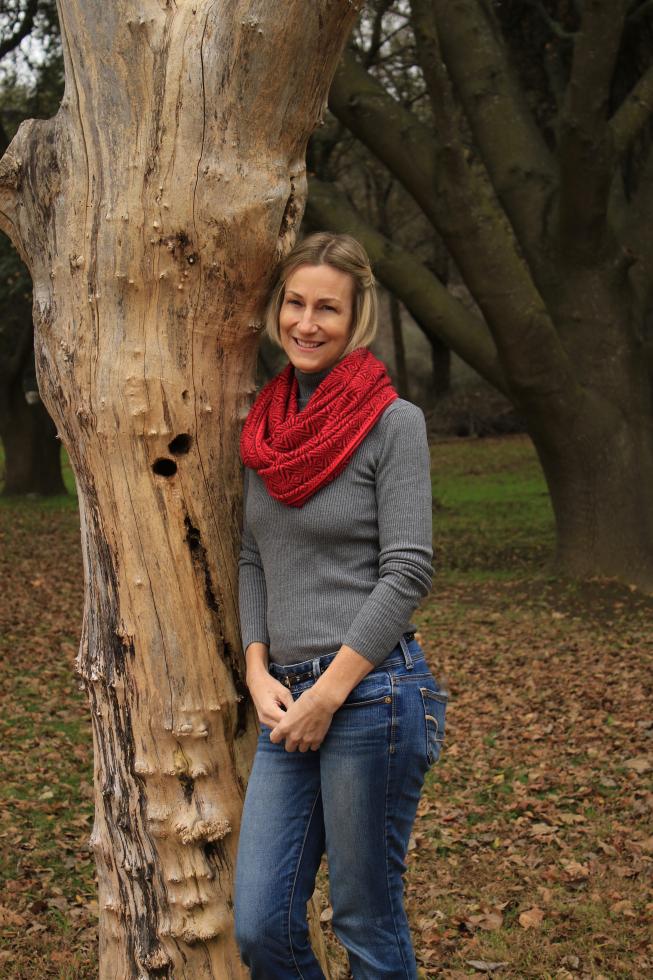Jennifer Junghans holds degrees in biological sciences and horticulture, and writes about food systems, wildlife and conservation. More at jenniferjunghans.com.
By this person

Speaking Out
Man with ALS is able to ‘speak’ again thanks to neurotechnology from UC Davis
Within minutes, the words he wanted to speak appeared on a monitor and were spoken aloud by a computer in a voice resembling his own using recordings from videos made before his diagnosis. It brought everyone in the room to tears. “On day two of this use by Casey, he was talking to his daughter for the first time in her memory. That was so gratifying,” says UC Davis Neuroprosthetics Lab co-director Sergey Stavisky.

The Rise of Alternative Health and Wellness
Businesses in the Capital Region consider the whole person
The approach of Whole Health, a movement led by the U.S. Department of Veterans Affairs, is “Let me understand who you are as a person. … What matters to you as opposed to what’s the matter with you,” says Dr. Michelle Dossett. “I think eventually it’s going to transform what we do in conventional medicine in this country more broadly.”
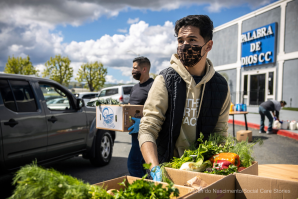
What a Waste
Californians throw away 11 billion pounds of food each year — a new recycling law aims to reuse it
Food waste recycling is vital to transforming California
into a circular economy. City and state organizations are
creating mandates to get us there.

STEAM Engine
Can adding art to STEM help resurrect a struggling education system?
While STEM education incorporates science, technology,
engineering and math, STEAM adds arts into the mix. Proponents of
STEAM say it develops creativity that bridges the sciences with
the development of personal expression, emotional intelligence
and social awareness: the human factors that define how we relate
to the world.
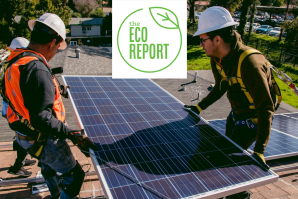
Energy Justice for All
Efforts to secure an equitable clean energy revolution are making headway, but there’s still a long way to go
As the clean energy movement gains momentum, issues about the
accessibility and affordability of clean energy technology —
particularly among disadvantaged communities — are
taking center stage.

Energy Revolution
Emerging technologies in the Capital Region are driving efforts toward electrification of the two most polluting sectors — mobility and buildings
As energy use advances, utilities ecosystems are looking to
build the appropriate infrastructure to respond in real
time.
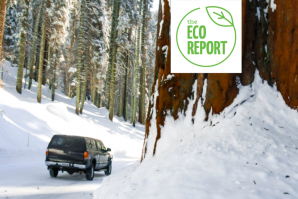
The Eco Report: Pass the Salt
Salt is taking center stage in efforts to balance public safety
and environmental health in the Sierra Nevada.
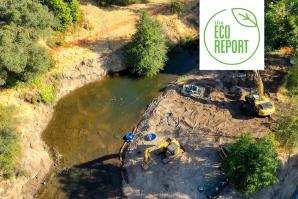
The City of Roseville Restores Its ‘Crown Jewel’
The Dry Creek restoration project is revitalizing habitat
for chinook salmon and steelhead trout.

California Plans to Conserve 30 Percent of Land and Coastal Waters by 2030
Gov. Gavin Newsom’s Executive Order N-82-20 aims to shift the approach toward proactive conservation of entire ecosystems.
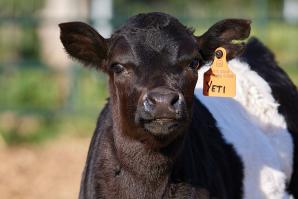
Greener Pastures
Long Dream Farm aims to prove that dairy production can be both ethical and economically viable
Andrew and Krista Abrahams want to rethink the assumptions of traditional dairy production.
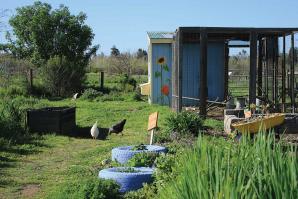
Regenerating Our Soil
A shift in agriculture practices can help the environment — and the bottom line
The dialogue around regenerative agriculture has evolved over the last decade as agricultural methods that were once practiced by Indigenous communities around the world are reemerging.
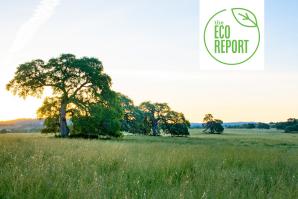
The Eco Report: Green to the End
Natural cemetery in Lincoln offers environmentally friendly end-of-life options
Imagine selecting your final resting place where bobcats roam,
wildflowers support bees and birds, and trails meander through
rolling grasslands, oak savannah and forested settings.

Breaking Ground
Women in the Capital Region are founding biotech companies with a global reach — but venture capital remains elusive
Women founders in the Capital Region are developing groundbreaking technology in biotech and ag-tech, emerging industries where territory is still uncharted.
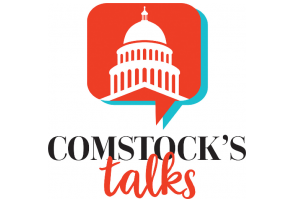
Comstock’s Talks: The Next Chapter Series
PODCAST: Listen to a six-part series about Capital Region professionals who found new pursuits after successful careers.

Comstock’s Talks: Agriculture and Beyond (The Next Chapter)
PODCAST: Pam Marrone, who retired as CEO of Marrone Bio Innovations in 2020, didn’t take a break; she still works 10-12 hour days. This profile is part of The Next Chapter, in which we check in with Capital Region professionals who moved into new pursuits or retirement after successful careers.
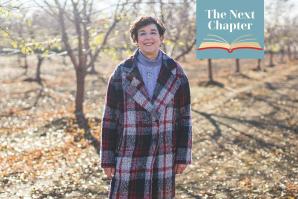
Agriculture and Beyond
The Next Chapter: Pam Marrone, pioneer of biological agricultural products, expands her reach through advising
Pam Marrone, who retired as CEO of Marrone Bio Innovations in
2020, didn’t take a break; she still works 10-12 hour days.
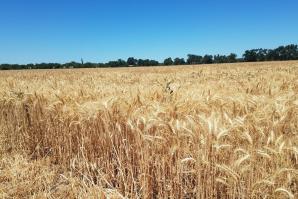
Flour Power
Long-term wheat research undertaken by UC Davis combats food insecurity
A 20-year study led by a UC Davis scientist and his
colleague at the University of Haifa in Israel was
recently recognized by the U.S.-Israel Binational Agricultural
Research and Development Fund.

Comstock’s Talks: Promise for New Proteins
PODCAST: Advancements in the alternative-protein space are igniting in the Sacramento area.
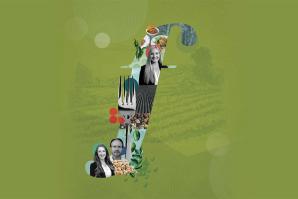
Promise for New Proteins
Advancements in the alternative-protein space ignite in the Sacramento area
In September, UC Davis was awarded the first federal funding
given to a university to research cultivated meat, positioning
the Capital Region to serve as a hub of the advancing
technology.

Comstock’s Talks: Promise for New Proteins
PODCAST: In September, UC Davis was awarded the first federal funding given to a university to research cultivated meat, positioning the Capital Region to serve as a hub of the advancing technology. Efforts to advance the emerging food market using science and technology have ignited worldwide to address the global challenge of food access and proper nutrition for a growing population and the unsustainable environmental and ethical practices of industrial animal agriculture as it barrels toward the planet’s capacity on land and at sea.
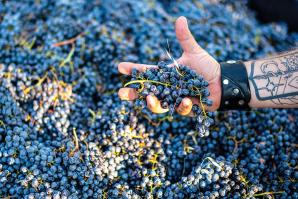
Change in the Grapevine
Capital Region vineyards and wineries are cultivating an environmentally friendly way of life
In the Capital Region, there’s an emerging market among boutique vineyards and wineries focused on low-intervention farming and production methods.
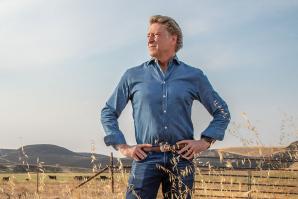
Protecting Open Land
California Rangeland Trust project places fiscal value on the environmental benefits of ranches
Ranchers and those in the conservation industry know there’s an inherent value to working lands, such as cattle ranches. But how do they monetize that value?

Comstock’s Talks: Protecting Open Land
PODCAST: West Sacramento’s Washington District has transformed in the past decade, due to efforts by the City of West Sacramento, developers and food entrepreneurs.

Comstock’s Talks: Protecting Open Land
PODCAST: California Rangeland Trust project places fiscal value on the environmental benefits of ranches.
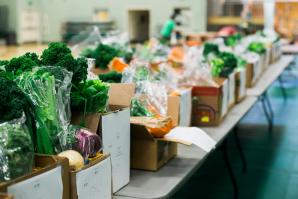
Keeping It in the Community
Grassroots efforts feed some of SCUSD’s most vulnerable families during the pandemic
After the closing of smaller food distribution centers that couldn’t meet COVID-19 required regulations, a grassroots program formed to serve people in need.
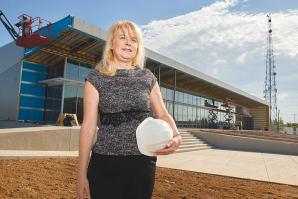
A New Deal for School Meals
Providing food to children is big business, and Sacramento City Unified School District aims to do it better
People love to hate school lunch, but the Nutrition Services team at Sacramento City Unified School District is out to change that.
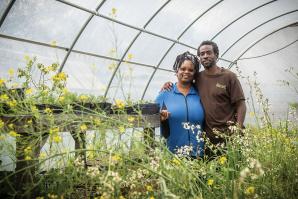
Seeds of the Future
What does it mean to be the ‘Farm-to-Fork Capital’ during the COVID-19 pandemic?
Here’s how four businesses are engaging in the Capital Region’s farm-to-fork economy and have adapted to the pandemic so far.
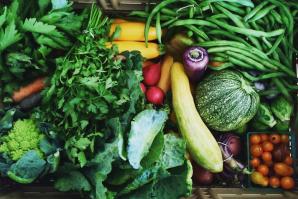
The Future of Small Farmers in Local Food Chains
Community Supported Agriculture programs have seen an uptick in business during the coronavirus pandemic
In response to the coronavirus pandemic, consumers flock to Community Supported Agriculture programs as reliable sources of fresh produce, but will they stay once the pandemic has passed?
Sponsored

Back to the Land
Vacaville’s small farms and outdoor experiences feed its agritourism ventures
Minutes from the Vacaville Premium Outlets, small farms dot the countryside, and local farmers tend the land. Their labor produces a bounty of fruits, vegetables and herbs; bundles of lavender and flowers; olive oil; wine; yarn spun from alpaca fleece; raw honey; and fresh eggs.
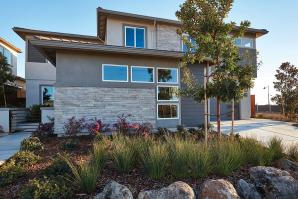
Lean but Still Green
More new developments across the Capital Region are using water-wise landscaping, but state rules are complex and not uniformly enforced
State regulations present an opportunity to shift the way we think about what an eco-friendly landscape can do when we move beyond compliance toward practices that conserve all natural resources and maximize water efficiency.
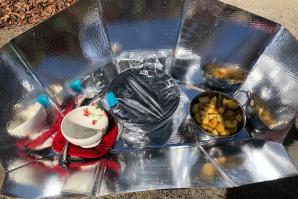
Sun Power
Evolving practices help bring solar cooking to the world stage
Solar Cookers International, the world’s leading organization on solar cooking, has been based in Sacramento since 1987. SCI’s work to reduce dependency on fuelwood could have far-reaching global economic impacts.
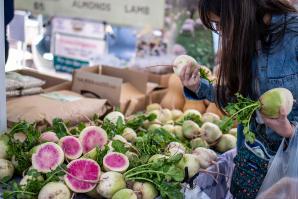
Growing Pains
Local farmers work hard to respond and adapt to the coronavirus pandemic
Comstock’s spoke with Paul Towers, executive director of Community Alliance with Family Farmers, a Davis-based nonprofit dedicated to supporting family farmers and community-based agriculture, to find out how small farmers in the Capital Region are faring during the coronavirus pandemic.
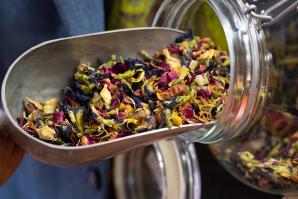
Tea Time
Consumer education is key for Capital Region tea shops
When Leo Hickman returned in 2003 from an eight-month tour in Kuwait as a combat engineer in the U.S. Air Force, he wanted a way to spread peace. With no idea how, he set out on a journey of self-discovery and backpacked through 27 countries.

Capital Region’s First Tree-Top Adventure Park is Planned for West Sacramento
In 2016, when husband-and-wife team Kale Wisnia and Catherine Reon were scouting locations for Kletterwald USA — planned as the Sacramento region’s first tree top adventure park — they immediately fell in love with the undeveloped park, just 10 minutes from downtown Sacramento.

From Pond to Fork
Passmore Ranch serves locally-raised seafood to some of the Capital Region’s finest chefs
Passmore Ranch invites local chefs to swim for their fish.

Wonder Women
Comstock’s celebrates six extraordinary women of influence who are redefining leadership on their own terms.
We’re highlighting six of the Capital Region’s most influential female leaders who are blazing trails in their respective industries.

Rancho Cordova Puts Budget Dollars in the Community’s Hands
In 2014, Rancho Cordova voters approved Measure H, a half-cent sales tax to fund the Community Enhancement Fund program, which funnels grant money from its general fund to improvement projects submitted by residents, local businesses and other organizations that support the city’s key priority areas: public safety; education; economic development; public works; arts, culture, history, entertain

Slumber Party
Your former bedroom community isn’t just for sleeping anymore
As California struggles to meet the rising housing demands and address the state’s policy to reduce greenhouse gas emissions, the Capital Region is positioned to look to the suburbs for answers. This means farewell to the bedroom communities and hello to vibrant communities on the outskirts of the urban core.

Seeds of Innovation
Important work happening in the Capital Region is transforming the future of vegetables
Eight of the world’s 10 largest vegetable seed companies are located near UC Davis, a world leader in plant science and agricultural research. The Capital Region is home to a vast ecosystem at the forefront of advancing food production — here’s how all the pieces come together.
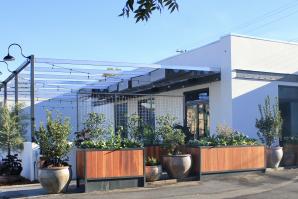
Zero is the Hero in Restaurant Waste
Sacramento chefs pair good business with environmental stewardship
Here in America’s farm-to-fork capital, consumers tend to understand this connection through our region’s rich agricultural heritage and California’s role as the nation’s largest agricultural producer. Local chefs like Brad Cecchi showcase seasonal produce and proteins from local farmers and ranchers who respect the land they farm and animals they raise, through practices intended to keep the land productive for generations to come.

Wood From the Hood
The urban wood movement is growing across the U.S. — with efforts booming in the Capital Region
An urban wood movement is growing across the country to reclaim this substantially-untapped natural resource, and efforts are booming in the Sacramento region.
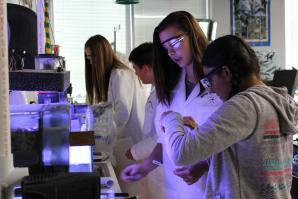
Science is for Kids
Proponents says Next Generation Science Standards will better prepare today’s workforce
Children at River Oaks Elementary School in Galt are more than just students. They’re scientists in the classroom and they do what scientists do — observe, ask questions, identify problems, gather data, analyze it and apply this knowledge in science, technology, engineering and mathematics to the real world.



